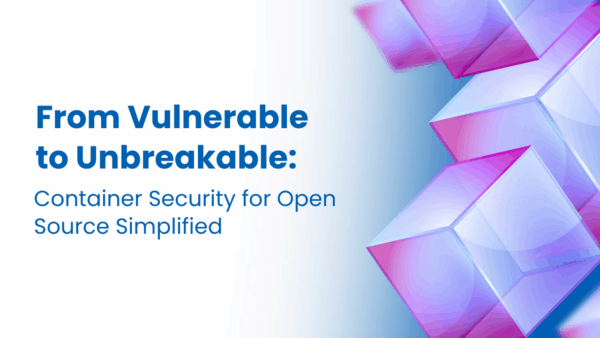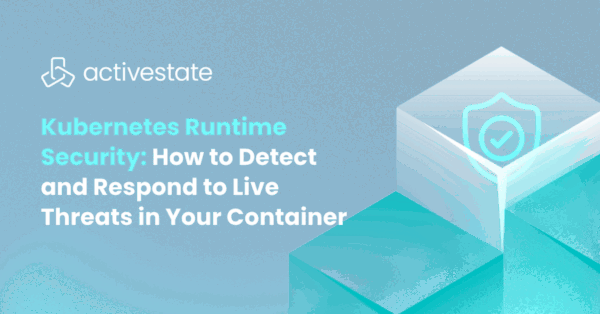The holidays are upon us, a time for reflection, celebration, and perhaps, a touch of… dread. Dread, you ask? For many DevSecOps teams, the holiday season can bring a unique set of anxieties:
- Increased vulnerability window: With many team members taking time off, the window for potential security breaches can widen.
- Deployment jitters: Urgent holiday season releases can heighten the pressure to deploy quickly, potentially compromising security best practices.
- The weight of responsibility: Ensuring the security and stability of applications while juggling holiday plans can be a heavy burden.
But what if the holidays could be a time of peace and tranquility for DevSecOps teams?
Enter a powerful solution from ActiveState that empower teams to handle ASPM while securing their software supply chains:
- Automate security checks: 3SC and ASPM automate the identification and remediation of security vulnerabilities across the entire software supply chain. This includes dependencies, open-source components, and custom code.
- Gain real-time visibility: 3SC and ASPM provide continuous monitoring and real-time insights into the security posture of your applications.
- Proactive threat detection: By identifying and addressing vulnerabilities early in the development lifecycle, 3SC and ASPM help prevent costly breaches and minimize downtime.
- Streamline compliance: 3SC and ASPM help organizations meet industry compliance standards like OWASP, NIST, and more.
How does this translate to holiday peace of mind?
- Reduced stress: Automated security checks and continuous monitoring free up DevSecOps teams from manual tasks, allowing them to focus on enjoying the holiday season.
- Increased confidence: Knowing your applications are secure and compliant provides the confidence to relax and enjoy the festivities without the constant worry of potential threats.
- Improved efficiency: By streamlining security processes, 3SC and ASPM enable faster and more efficient deployments, even during the busy holiday season.
Real-World Examples of ASPM in Action
Financial Services: Guardian Angels for Holiday Transactions
Let’s take a large bank for example. Traditionally, managing the security of their vast ecosystem of dependencies used in core banking applications was a daunting task. Manually sifting through third-party libraries for vulnerabilities was time-consuming and error-prone. This left a nagging worry, especially during the holiday season when online transactions surge.
Enter ActiveState. By automating security checks across the entire software supply chain, our ASPM solution acts as a guardian angel for the bank’s developers. It continuously scans dependencies, open-source components, and custom code, identifying and remediating vulnerabilities before they can be exploited by attackers. This proactive approach empowers the bank to prevent data breaches and maintain customer trust, ensuring a smooth and secure holiday shopping season for their customers.
Healthcare: Keeping Patient Data Safe During the Holiday Rush
Hospitals face a unique challenge: protecting sensitive patient data while also managing the influx of patients during the holiday season. A leading hospital, for instance, previously relied on manual processes to monitor the security of its patient data management systems. This reactive approach left them vulnerable to potential threats.
ASPM steps in as the hero of this story. By providing continuous monitoring and real-time insights into the security posture of the hospital’s systems, ASPM empowers the security team to identify, remediate, and deploy vulnerabilities proactively. This ensures the confidentiality and integrity of sensitive patient information, even during periods of increased hospital traffic during the holidays.
E-commerce: Building Trust Through Secure Holiday Shopping
The holiday season is a critical time for e-commerce retailers. A global retailer, for example, faced the challenge of securing its e-commerce platform, including its mobile app and website, during peak shopping season. Manually analyzing the security of their complex platform was a cumbersome task.
ASPM comes to the rescue. By automating security checks across the retailer’s entire e-commerce platform, ActiveState helps them identify, prioritize, and remediate vulnerabilities in their code and third-party libraries. This proactive approach ensures secure transactions and builds customer confidence during the critical holiday shopping season.
The Benefits Beyond the Holidays: A Gift That Keeps on Giving
The peace of mind offered by ASPM extends far beyond the holiday season. By implementing these solutions, organizations can experience a multitude of benefits throughout the year, including:
- Accelerated development cycles: Automated security checks and streamlined workflows enable faster and more frequent releases, allowing businesses to respond quickly to market demands.
- Improved developer experience: By removing the burden of manual security tasks, ASPM solution empower developers to focus on innovation and creativity.
- Enhanced competitive advantage: By demonstrating a strong security posture, organizations can build trust with customers, partners, and investors.
- Build a culture of security: ASPM solutions help foster a culture of security within the organization, where security is integrated into every stage of the software development lifecycle.
This holiday season, give the gift of peace of mind to your DevSecOps team. Explore how ActiveState’s ASPM solution can help you:
- Enhance application security: Protect your applications from known and emerging threats.
- Improve developer productivity: Streamline security workflows and accelerate development cycles.
- Minimize risk: Reduce the likelihood of costly security breaches and downtime.
- Gain a competitive edge: Differentiate your organization with a strong security posture.
Don’t let security concerns overshadow your holiday cheer. Try our enterprise trial to see our platform solve your problems in real-time.






